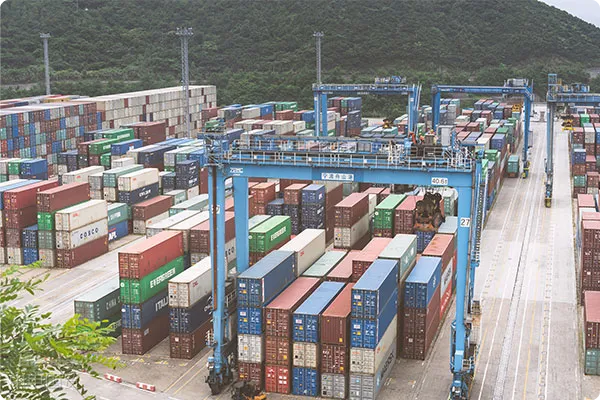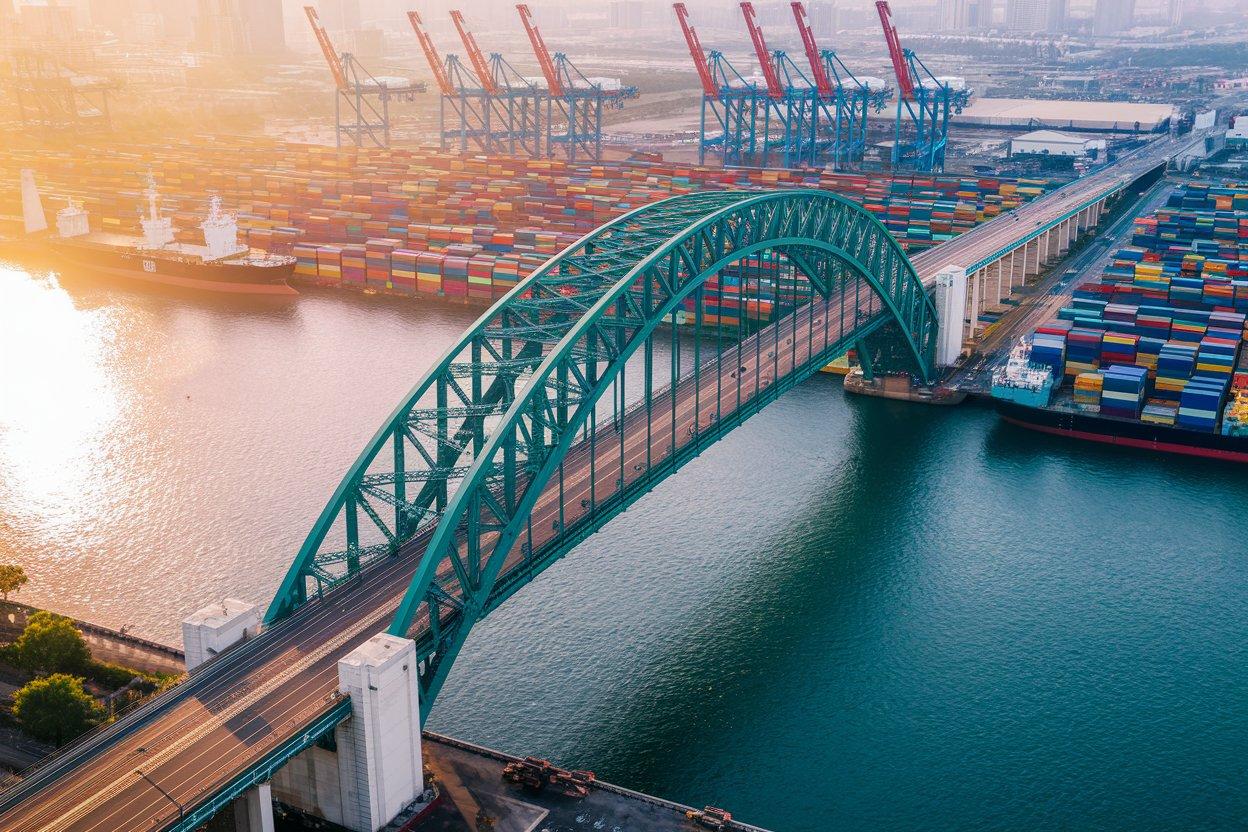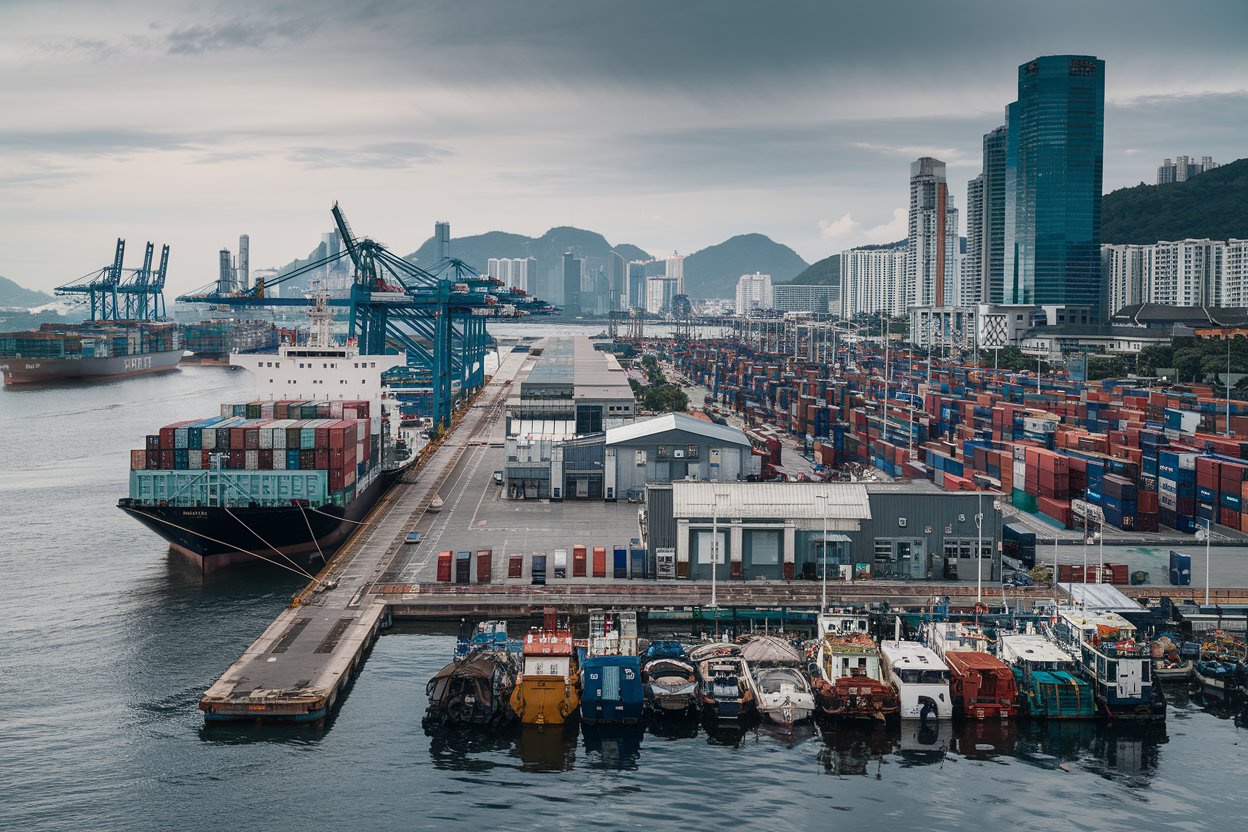- Shanghai Zhongshen International Trading Co., Ltd. – Your reliable partner with 20 years of import/export agency service expertise.

Export Agent ServicesIs the service subject to value-added tax?
According to the latest 2025 "Value-Added Tax Management Measures for Cross-Border Taxable Services," export agency services are applicable.zero-rate policy. However, two scenarios require attention:
- Pure agency services (without involving ownership of goods): Eligible for VAT exemption policy.
- Comprehensive agency services (including logistics, customs clearance, etc.): Different service types need to be separated for individual tax calculation.
- For example: The agency fee is partially tax-exempt, while the advanced freight is subject to a 6% value-added tax.
Practical case: A garmentforeign tradeThe company entrusts an agency to export goods worth $5 million, with an agency fee charged at 1.5%. Among this, $75,000 of the agency fee is tax-exempt, and $200,000 is advanced by the agency.Maritime transportThe fee requires payment of 12,000 yuan in value-added tax.
How are the foreign exchange service fees collected by an agent taxed?
The tax treatment of agency service fees needs to be distinguished.Domestic paymentandOverseas payment:
- Domestic enterprises pay agency fees:
- Withholding and remittance of 6% VAT is required.
- Corporate income tax is withheld at a rate of 10%.
- Foreign enterprises paying agency fees:
- In compliance with the provisions of Document Cai Shui [2023] No. 37, tax exemption may be applied for.
Special Notice: Effective from 2025Cross-border Service Tax Filing DigitalizationThe system requires enterprises to complete the filing within 15 working days after payment.
Tax RebatesWhat is the connection with tax agency?
Special attention should be paid to export tax rebates under the agency model.The subject-verb agreement rule:
- The consignee on the customs declaration form must be the actual owner of the goods.
- The agency agreement must clearly specify the ownership of tax refund benefits.
- The flow of special VAT invoices should comply with the principle of "who exports, who claims the tax refund."
Risk Case: A proxy company used its own name to claim tax refunds, resulting in the actual production enterprise being unable to deduct input tax. Ultimately, the refunded tax was recovered, and a fine was imposed.
What taxes and fees are involved in cross-border payments for agency services?
Key Points for Tax Treatment of Cross-Border Payments in 2025:
- Payment of overseas commissions:
- The portion exceeding 5% of the contract amount is not tax-deductible.
- Tax filing for outward payment is required (the filing threshold will be adjusted to USD 80,000 in 2025).
- Payment of domestic agency fees:
- A special VAT invoice should be obtained.
- Please note the difference in the deduction ratios between commissions and marketing promotion fees.
How to Avoid Tax Risks in Agency Mode?
It is recommended to establishFour-tier tax risk prevention and control mechanism:
- The contract terms clearly specify tax liabilities.
- Special Agreement on Invoice Issuance Method
- Clarify the application of tax treaties to cross-border services
- Fund Flow Management
- Establish a dedicated agency fee account
- Retain complete payment vouchers
- Document Filing System
- Retain the original customs declaration documents for at least 10 years.
- Electronic archives must comply with the GB/T 35600-2025 standard.
- Regular tax health check
- It is recommended to conduct a quarterly review of export tax rebate compliance.
Conclusion: In 2025, the General Administration of Customs and the State Taxation Administration will strengthenCross-departmental data comparisonIt is recommended that enterprises make the following preparations in advance: establish a digital tax management system, retain complete transaction chain evidence, and regularly participate in tax training for AEO-certified enterprises by customs. For uncertain tax-related matters, promptly consult professional trade tax advisors.
? 2025. All Rights Reserved.










